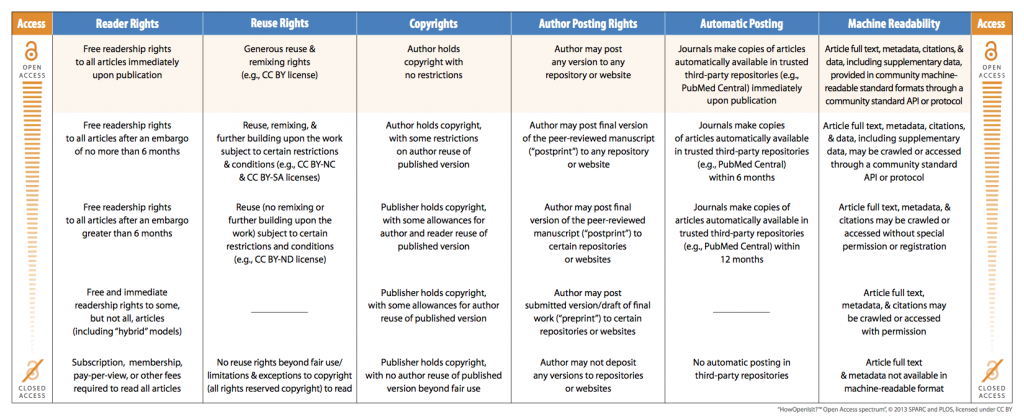In its more than 350 year history, scholarly publishing has evolved from formal publication of discoveries by elite members of scholarly societies to open dissemination of scholarly research through new technological platforms that is increasingly subject to new and emerging forms of peer review and measured for impact by traditional and alternative metrics.
In the course of scholarly publishing's history, issues have arisen with respect to the economic sustainability of publishing's business model as well as how journals should be evaluated and their impact measured. Libraries have been at the forefront in proposing solutions and developing means for addressing these issues. [Source: ACRL Scholarly Communication Toolkit]
This overview of Scholarly Publishing covers the following topics:
Below are links to several organizations representing scholarly publishers. These organizations frequently provide webinars, handouts and other opportunities to further engage with the topic of scholarly publishing.
Open Access Spectrum

OA Journals
Sources for Open Access Publications:
Here are some leading indicators of predatory journals [Source: https://predatoryjournals.com/about/]:
OA Repositories
WAME (World Association of Medical Editors)
What's the difference between Open Access resources and Open Educational Resources (OERs)?
Open Access is the free, immediate, online availability of research articles combined with the rights to use these articles fully in the digital environment. Open Access is the needed modern update for the communication of research that fully utilizes the Internet for what it was originally built to do—accelerate research [Source: https://sparcopen.org/open-access/]
In contrast, OERs (Open Educational Resources) are free and openly licensed educational materials that can be used for teaching, learning, research, and other purposes.[Source: https://wiki.creativecommons.org/wiki/What_is_OER%3F]
According to the United Nations Educational, Scientific and Cultural Organization (UNESCO), Open Educational Resources are "any type of educational materials that are in the public domain or introduced with an open license. The nature of these open materials means that anyone can legally and freely copy, use, adapt and re-share them. OERs range from textbooks to curricula, syllabi, lecture notes, assignments, tests, projects, audio, video and animation."

ORCID is a nonprofit organization helping create a world in which all who participate in research, scholarship and innovation are uniquely identified and connected to their contributions and affiliations, across disciplines, borders, and time.
Your ORCID number provides a persistent digital identifier that distinguishes you from every other researcher and, through integration in key research workflows such as manuscript and grant submission, supports automated linkages between you and your professional activities ensuring that your work is recognized.
To get an ORCID ID, Go to https://orcid.org/

If you haven't updated your CV within the year, then it is time to do it! Often, we only update our CVs when applying for jobs or going up for an award or promotion. The downside of this approach is that we often forget noteworthy accomplishments over time.
Refreshing your CV allows you to:
Follow the steps to keep your CV up-to-date and ready to go!
1. Update Your Personal Contact & Education Information
2. Decide on a Structure: Identify Headings and Heading Order
3. Update the Information under Each Heading
4. Proofread for Consistency and Errors
John B. Coleman Library |
Library Hours
|